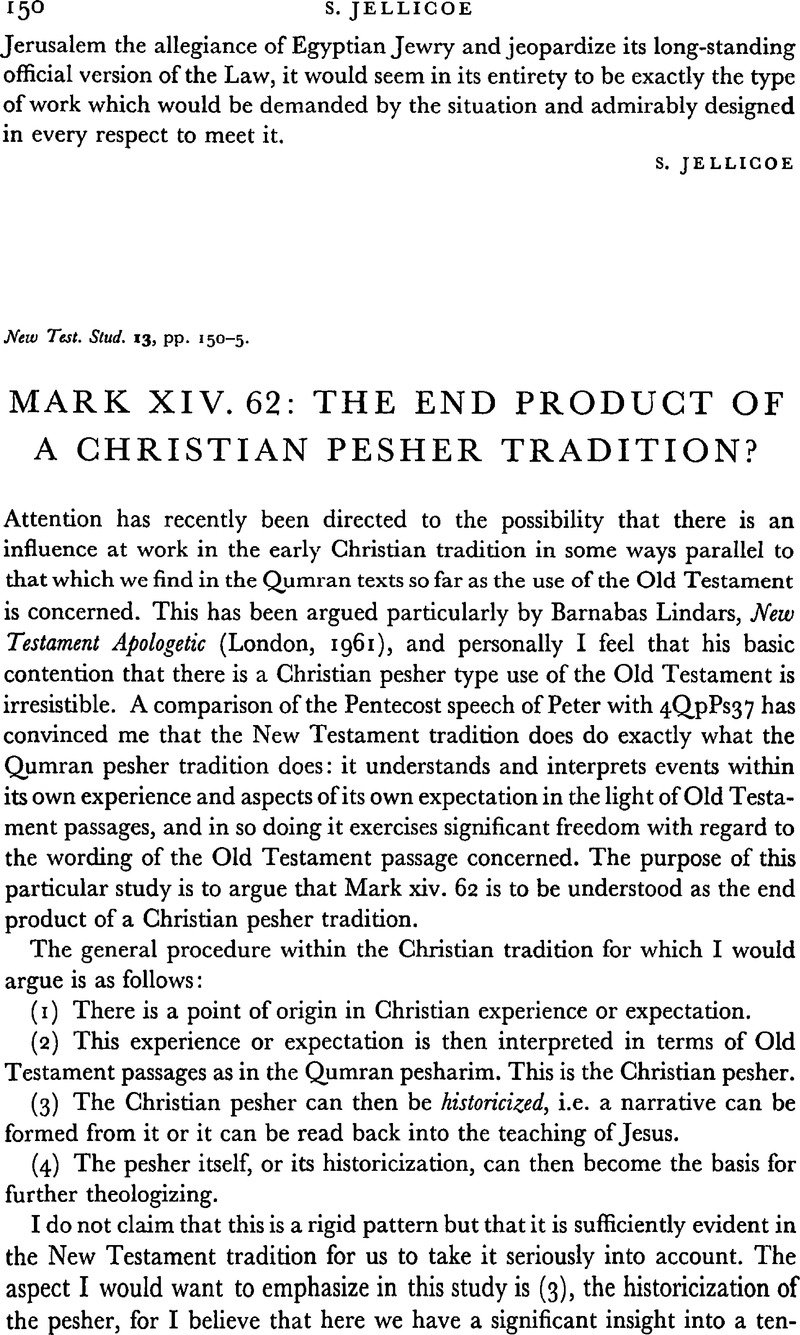Published online by Cambridge University Press: 05 February 2009

page 151 note 1 Robinson, J. A. T., Jesus and His Coming (1957).Google Scholar The view is widely held in British New Testament scholarship. Robinson claims the support of C. H. Dodd, T. W. Manson, Vincent Taylor, T. F. Glasson and G. S. Duncan at various points in his arguments.
page 153 note 1 Lindars, p. 124, suggests δψονταı but this suggestion overlooks the possibility that this reading is the end product of a word play in the Christian pesher, as will be argued below.
page 153 note 2 Such a word play could also lead to a substitution of ⋯ψονταı for κόψονταı in Zech. xii. 10b (see the third example of Qumran word plays above for an instance of this kind of substitution in a Qumran pesher). This substitution has actually been made by the original hand of Codex Sinaiticus, which reads ![]() in Zech.xii. 10. I would suggest that this reading is due to, and is evidence for, the word play κόψονταı—⋯ψονταı in Christian pesher tradition. It should be noted that Sinaiticus reads this ⋯ψονταı for the usual ⋯ψεταı in Rev. i. 7.
in Zech.xii. 10. I would suggest that this reading is due to, and is evidence for, the word play κόψονταı—⋯ψονταı in Christian pesher tradition. It should be noted that Sinaiticus reads this ⋯ψονταı for the usual ⋯ψεταı in Rev. i. 7.
page 154 note 1 Lindars seems not to have taken account of a point made by Scott, R. B. Y., ‘Behold, he cometh with Clouds’, N.T.S. v (1955/1956), 127–32Google Scholar, that wherever Dan. vii. 13 is quoted in the New Testament the word order is changed to bring the adverbial phrase ‘with (in) clouds of heaven’ immediately after the verb ‘coming’, a change not made in the Greek versions.